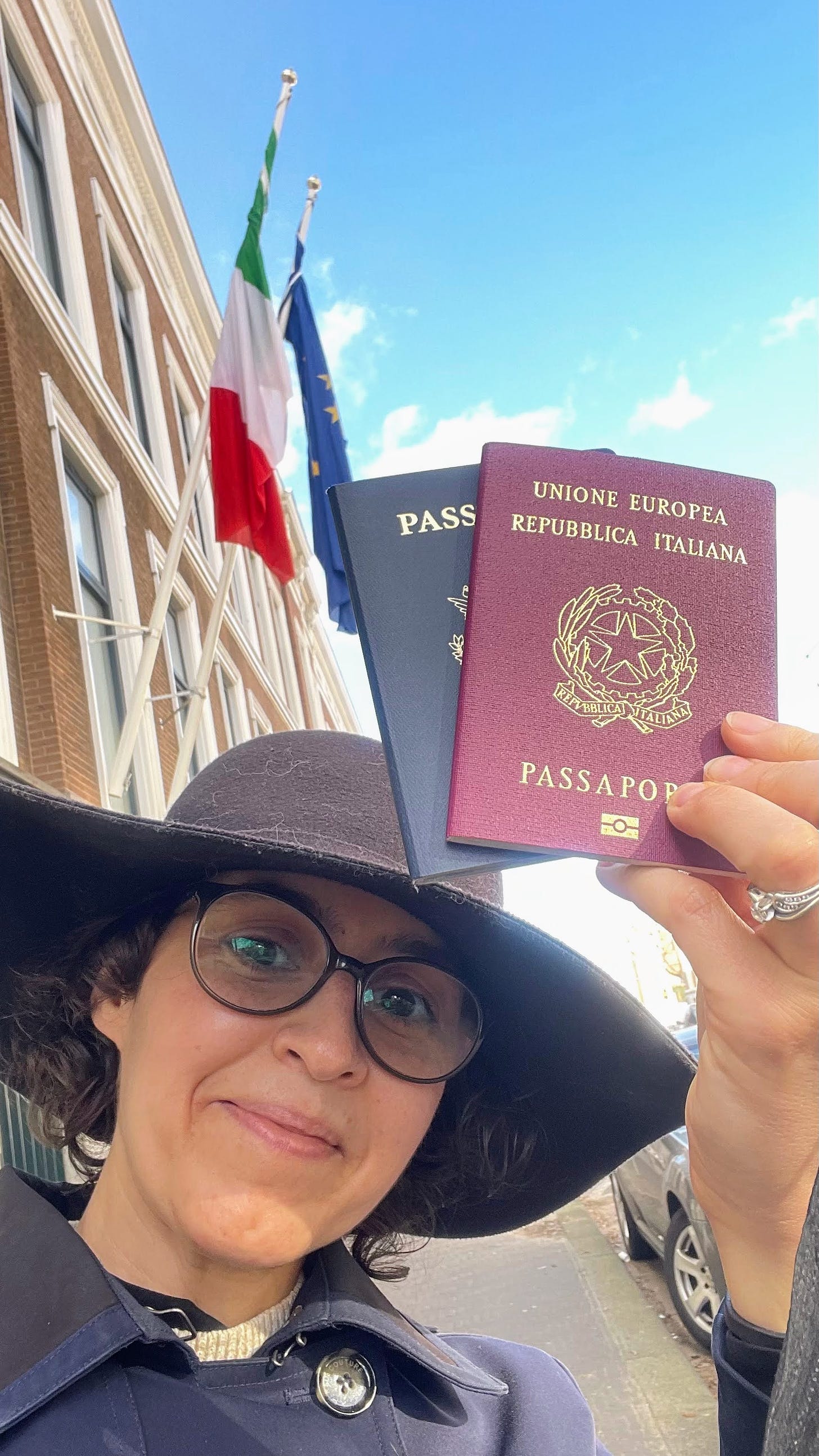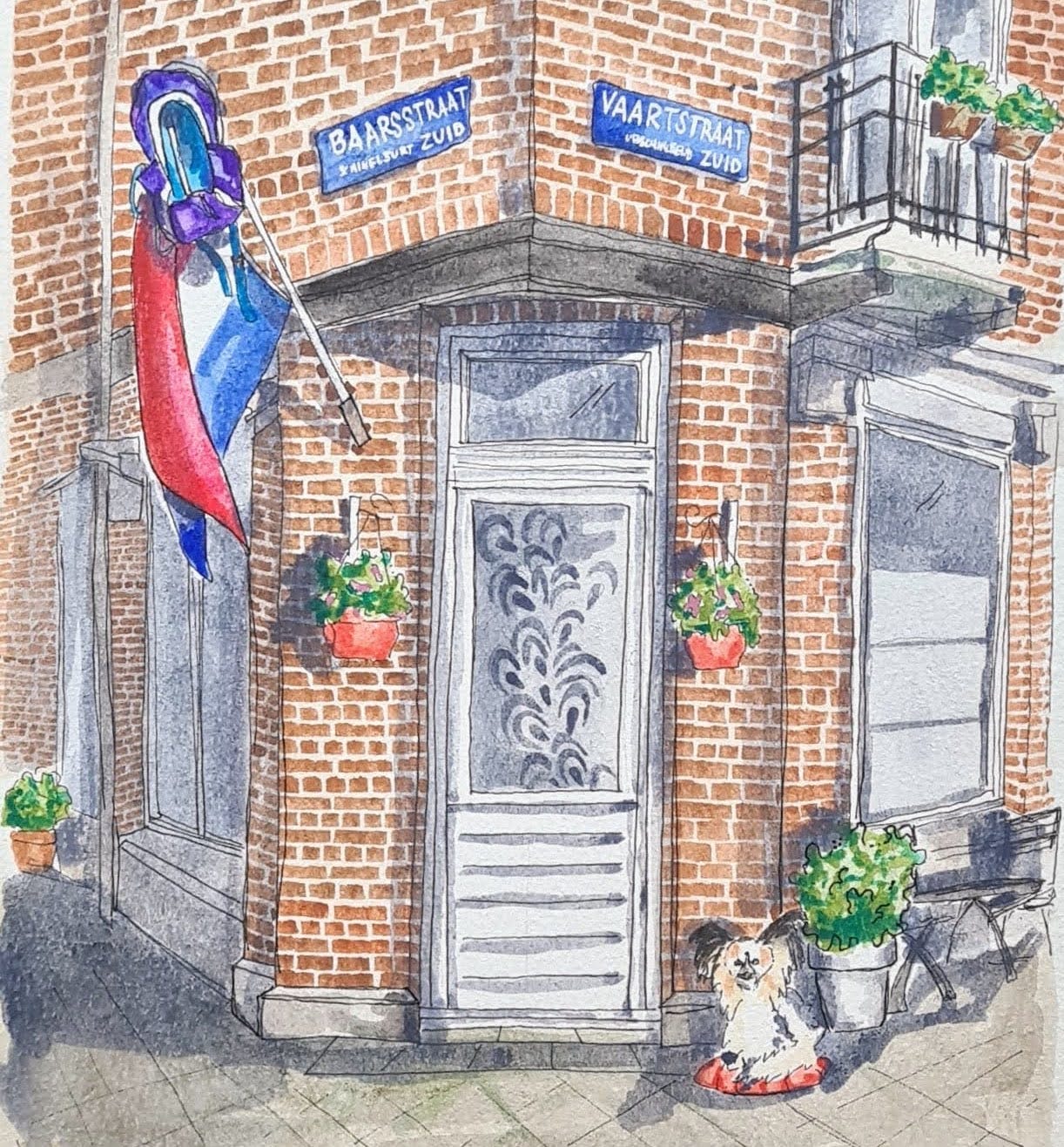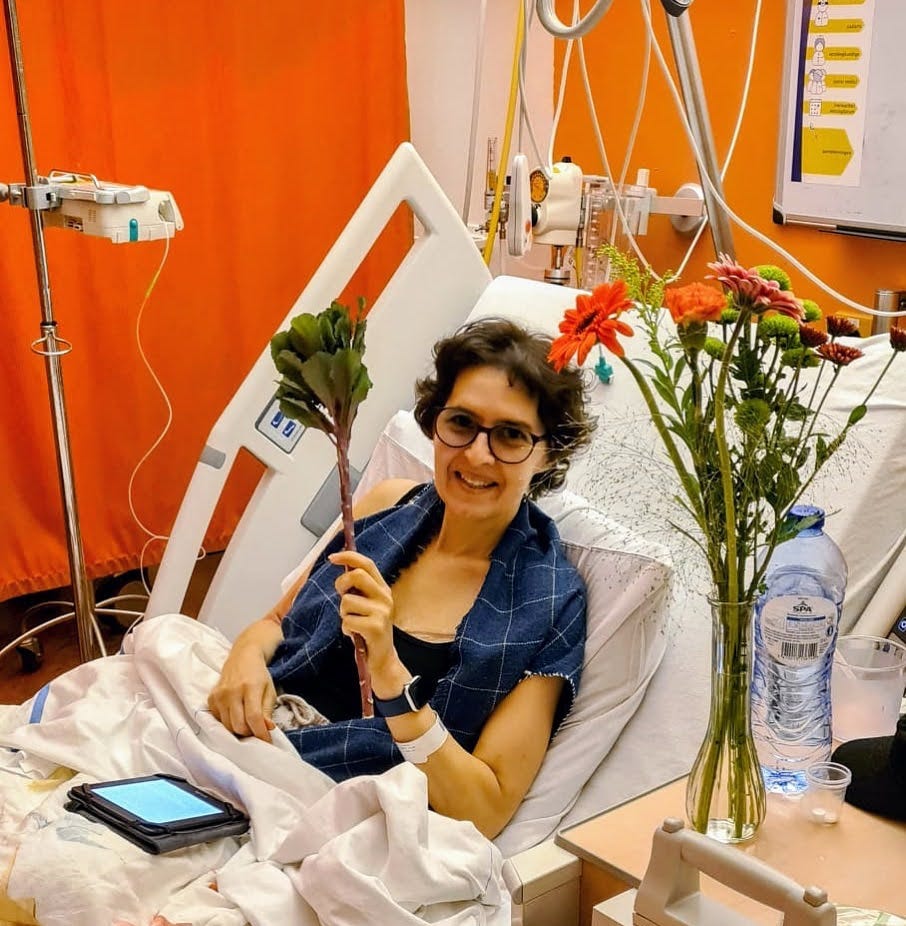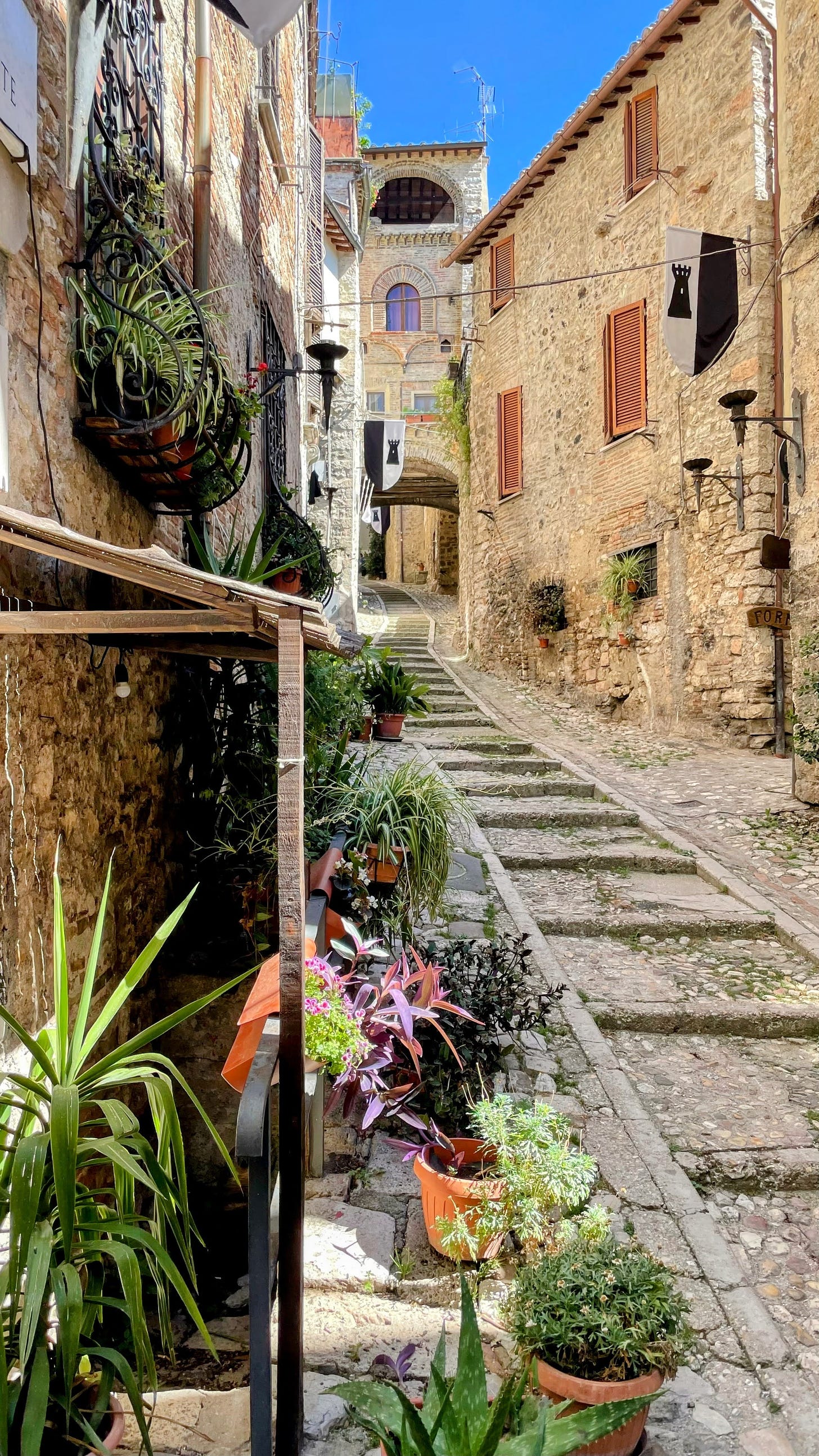For the first twelve years of our marriage, it was hard to imagine we’d ever be able to afford to buy a house. We got married in the early aughts, and—as dictated by our childhood religion—had kids right away. Before my husband even finished his bachelor’s degree, in fact. When he graduated, we started a business. Which was never wildly successful, but did OK until the Great Recession killed it and threw us into financial disaster.
It was a rough several years. Rents in California were sky high. Our car got repossessed. We lived with my in-laws for a couple of months. Eventually we moved to Florida, where we spent three years trying to get back on our feet, and mostly just living paycheck to paycheck.
Our one saving grace was that before everything fell apart I managed to get my husband Italian citizenship through his great-great grandfather, who immigrated from Italy to the United States in 1855. This was a quixotic task involving as many miles of red tape as you might imagine.
In the end, though, I count that grand bureaucratic quest as one of the most important accomplishments of my life. Because it made possible everything wonderful that’s happened since.
(And eventually I got my own Italian passport too.)
In 2015, that EU passport allowed us to move to the Netherlands. We had no idea at the time how much better life would be across the Atlantic Ocean, but we were treading water in the United States and figured it was worth taking a chance. We packed our bags, and bought one-way tickets to Amsterdam.
After our first year here, we knew we wanted to stay. The kids were thriving in their Dutch school—which isn’t strange: Dutch schools are so good even the King of the Netherlands sends his children to public school. My husband’s career was taking off in Amsterdam’s tech hub, and I had a job I loved at a small archive in The Hague.
Still, there were bumps in the road. The housing market in Amsterdam was tight then—as now—so when our landlady said she was moving back in and thus could not renew our lease, it was tough finding another place to rent. We’d assumed that just like in the United States there was no way we’d be able to buy a house without saving up tens of thousands for a down payment. But then someone happened to mention to us that things work differently here. All we needed to get a mortgage, it turned out, was a permanent work contract.
Even before this, the idea of a permanent work contract had been a pleasant surprise. It’s really hard to fire people in countries like the Netherlands with robust labor unions and legal frameworks that favor workers over corporations. I can’t overstate how much less stressful life is when you know your employer isn’t allowed to just decide to let you go. Learning that banks consider a permanent work contract enough of a guarantee that they’ll loan you the full amount for a house, no down payment required, was the icing on the cake.
We couldn’t believe our luck. And sure, all we could afford to buy was an 800-square foot apartment. But it was in a wonderful neighborhood near the children’s school, with grocery stores, parks, and a dozen charming cafés all within walking distance. Which was another great surprise. All we do here is walk or bike or take excellent Dutch public transportation. In almost a decade in Amsterdam, we’ve never owned a car. We do belong to the local car share, so on the rare occasions when we do need one, we just open the app and reserve the little red car always parked conveniently outside our house.
(I commissioned this painting of our Amsterdam house from the talented Maggie Wilcox, a fellow American in the Netherlands. If you’re sentimental about your house like us, and need it immortalized in charming watercolor, she’s your woman.)
And did I mention that my husband and I both spent the pandemic getting master’s degrees for which we paid only a few thousand euros because that’s how much tuition for higher education costs in Europe? Which also means sending our kids to college won’t bankrupt us, despite the rough start to our financial life.
I could go on about the social safety net and how I’m still getting over how scary it was to live in such a contingent way for so long in the United States. In fact, I have, at length, to my therapist, who is 100% covered by my affordable Dutch health insurance. So is the physiotherapist I see intermittently for my forty-something back, and new glasses every year or two, and visits to specialists, and medications.
In 2022 I had a scary bout with sepsis resulting in two weeks in the hospital and daily home nurse visits for months afterwards. The total cost: €54,000. Of which I received a bill for a grand total of €194, because that’s all that was left of my €385 deductible for the year. In fact, I wouldn’t even know the amount insurance paid if I hadn’t gone into my health insurance app in disbelief to see when the other shoe would drop. That’s the thing. Here, the shoe doesn’t drop. And people don’t need a GoFundMe for lifesaving medical treatment.
(Me in a Dutch hospital, enthused to be alive, and not worrying how much this will cost me.)
Maybe I was just bad at living in the United States, and maybe this all seems way off topic, but what I’m trying to convey is how different it feels to live here. Like, different specifically when it comes to financial stress. I won’t even go into the many other things (like work-life balance and weeks and weeks of paid vacation) that I love about living in a robust social democracy.
Anyway, what I began writing this post to explain is how we managed to afford a house in Italy. I think I’ve sufficiently covered the Europe part, which can be summed up by the fact that home ownership became possible for us in the Netherlands in a way it never was in the United States.
The luck part is that we bought eight years ago in Amsterdam. Our house has gained so much equity in the interim that when we asked our bank for a loan so we could pay cash for a (similarly small, but very much cheaper) house in a little town in Italy, they said yes! Our mortgage is more expensive in the meantime, but once we sell our Amsterdam house and move full-time to Italy in a year, we will be mortgage-free. And the icing on the cake is that our little Italian house has an even littler unfinished cellar for me to turn into the indie bookshop of my dreams.
I’m still flabbergasted all this is true. The whole thing feels like some miraculous fiscal alchemy. And even though we worked so hard to make it happen, I know that—like so many things in life—so much of this comes down to the many ways I’ve been lucky.
Still, I have to acknowledge: one thing I’ve learned is how practical a dream can be. I doubt anyone would have told us nine years ago that the responsible financial choice was to pack it all up and move to Amsterdam. But it turned out to be the best possible decision we could have made, not only from a quality-of-life perspective, but for our financial present and future.
I think there’s a life-lesson there. The fact that it tastes good doesn’t necessarily mean it’s bad for you. Dark chocolate and avocado and fresh blackberries are delicious and nourishing. And so, for me, is living in Europe. So if you have a dream like this, and someone (maybe yourself) has told you it’s impractical, here’s permission from me to hear that for the knee-jerk response it is. Dig deeper, and who knows? You might find it’s the best decision you could ever make.
For my part, I’m glad we chose the path less trodden, even if it felt like a risk. I’m ridiculously grateful for the gift of living my European dream, and can’t wait to move into the next phase of this grand adventure on a flower-filled cobblestone street in Italy.









What an encouraging and hopeful narrative for those to consider what they feel might be impossible. Living in Portugal is a dream years in the making and it is a gift every day when I wake up and see the Douro River from my window. We are not rich people, but managed to sell my childhood home, and with other small sums of money are doing well here. Thanks for this and I look forward to your Italian life when that comes to pass.
Planning ahead. So much to be said about it!!! The generational passport is the key. Many don’t realize they are entitled or can’t take the trouble.
As we have chatted, I have a long history in NL. I adore everything about the country and the people. What’s more, all the hoopla in the US about ‘socialism’ is exactly all the benefit you are experiencing. It’s nothing bad. It’s stabilizing. The Dutch are very good at running businesses. They run their country just as well.
Will have to come visit the bookshop when we get to the other side on our journey! Our first stop has been Canada which is a move we are happy with and next it’s Spain or Italy. Italy has been a second home on and off for the past 5 years. So we’ll make it to your spot, for sure!